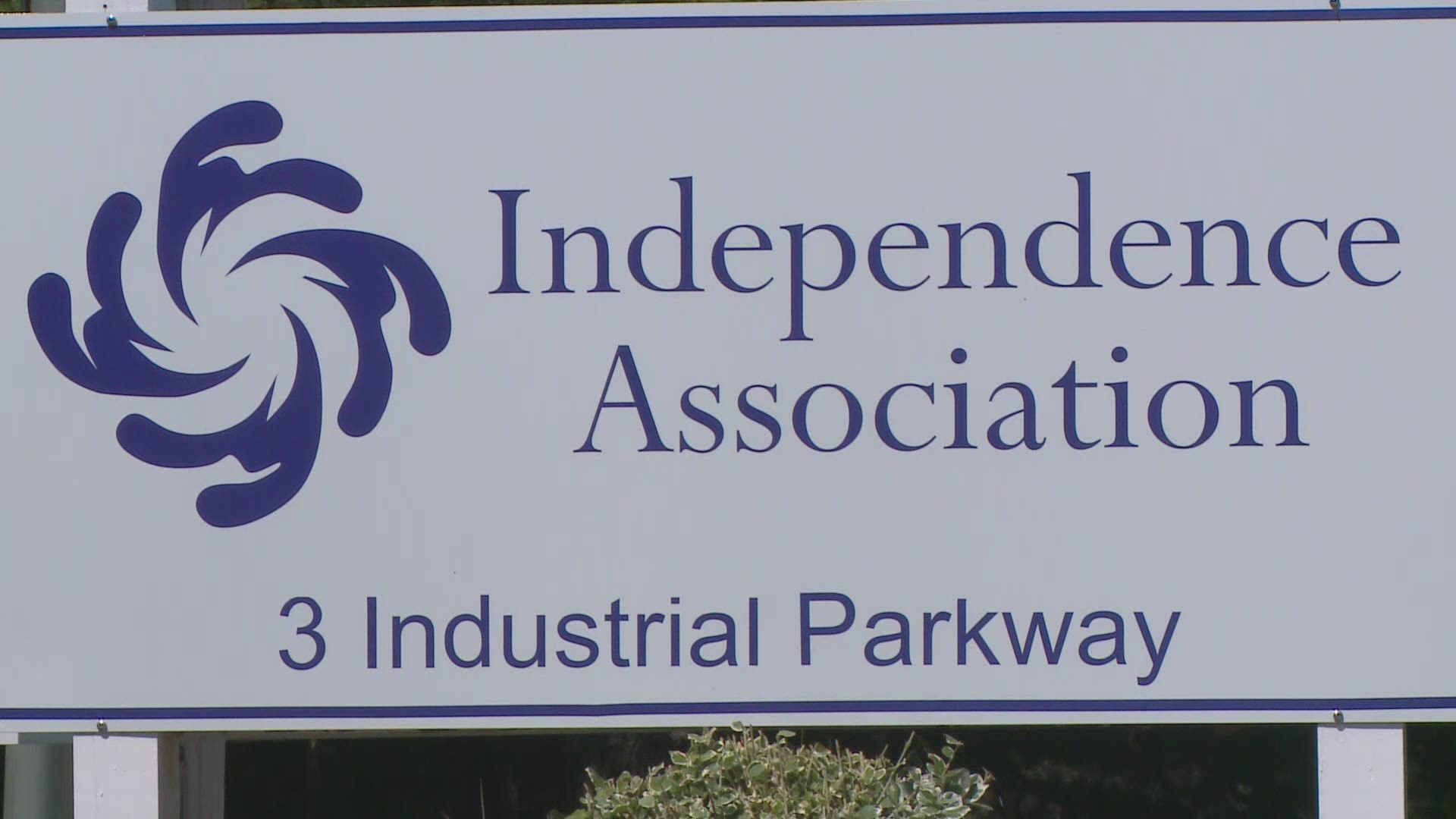BRUNSWICK, Maine — Calling it a 'dire situation' -- providers who care for some of Maine's most vulnerable populations are stepping up their appeal for state funding -- in the form of higher wages and more supplies of Personal Protective Equipment.
They're called Direct Support Professionals -- or D-S-P's -- and they work with the elderly and people with disabilities in group homes and congregate living facilities -- often for close to minimum wage -- in places where COVID-19 has run rampant.
Independence Association runs 10 group homes in the greater Brunswick area.
DSP's help more than 400 residents with intellectual and developmental disabilities live independently.
But the organization is down a third of its employees during the biggest surge of the pandemic. Other providers are experiencing major staff shortages, as well...fueled by low wages, concerns about the virus, and having to work long shifts in full PPE gear.
'People across the state are hurting for DSPs so badly and we can't afford to pay them hazard pay,' Ray Nagel, the Executive Director at Independence Association said.
Right now, DSP's make around $12 an hour, the minimum wage.
But Portland's new wage increase, including emergency pay for front line workers is luring away potential employees.
"They can go from Brunswick to Portland, where they can make $18 an hour," Nagel said.
A 10 percent pay hike to Maine Care reimbursement rates, when COVID-19 hit, ended in June. Some providers used the funds to purchase proper PPE. Providers are lobbying the Maine Department of Health and Human Services for a 25 increase through the first few months of next year. Providers are also working with legislators on proposed legislation that includes a pay increase that could be introduced in the next session. Nagel said the organization is grateful to DHHS that staff and residents are scheduled to be against COVID-19 in the next month or so.
"Every time her name comes up, they don't have to have the staff to meet the need," Jennifer Profenno said.
Shortages of Direct Support Professionals are also impacting residential treatment centers in Maine. They provide medical care to people with intellectual disabilities and mental health problems.
Jennifer Profenno's daughter Rhiannon, was diagnosed with autism at a young age. Following several hospitalizations, she was placed at a center in New Hampshire six years ago, because no beds were available in Maine. Now 18, Rhiannon remains on a waitlist to return home. But due to COVID-19 restrictions, the family has only been able to face time with her...they haven't seen her in person since February.
"The biggest concern for her always is she getting the proper care," Profenno said.
Debbie Dionne's daughter Kate, has cerebral palsy and lives in a group home run by Independence Association. She was allowed to go home over the holidays.
"We got to hug for the first time in nine months, it was pretty amazing," Dionne said.
The visits are being allowed provided everyone tests negative for COVID-19 and residents must quarantine when they return. With no outbreaks so far, Nagel says the visits are worth the risk for everyone's mental well being.
Jackie Farwell, A DHHS spokesperson would not comment on the request for a funding increase but tells NEWS CENTER Maine providers can apply for state and federal funds to cover revenue loss and costs during the pandemic.
In a statement to News Center Maine, Farwell said,
'The Department has taken numerous steps to support adults with developmental disabilities and brain injury in their homes and communities in the face of the COVID-19 pandemic. This includes implementing Appendix K to all of Maine's home and community-based waiver programs. Under Appendix K, providers received a temporary rate increase to help offset the costs of hazard pay for direct support workers, personal protective equipment, and other COVID-19 related costs. Agencies were also given flexibility with staffing to ensure they can follow best practices for preventing the spread of infection across homes. Group homes that experience outbreaks may also send samples to the state lab to be tested at no charge.
Additionally, group home agencies could apply for the Maine Health Care Financial Relief Program, which provides up to $100,000 in financial relief for organizations that have incurred business disruptions due to the COVID-19 pandemic. We also have encouraged providers to apply to the Federal Provider Relief Fund, which supports Medicaid providers that have experienced revenue losses and/or increased costs during the pandemic.'

